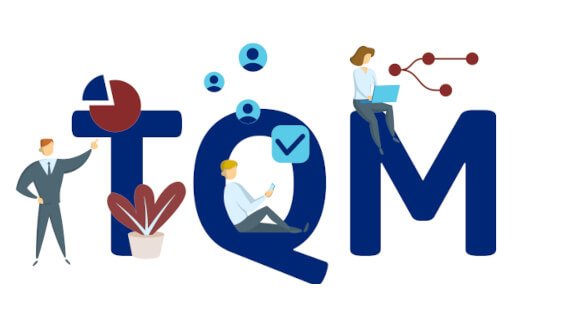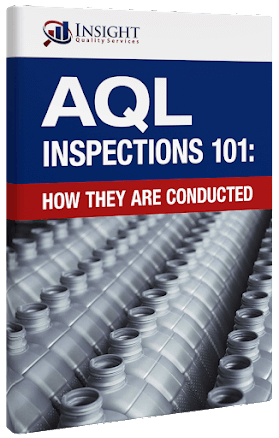What is Total Quality Management (TQM), and How Does it Work?



Table of Contents
Committing to quality isn’t a one-time initiative — it’s an ongoing process that involves careful strategizing and monitoring of your supply chain and business model. But high-quality output doesn’t emerge from nowhere: it’s the people within your organization whose effort and commitment to quality creates overall excellence.
That theory gained traction in the 1980s and was dubbed Total Quality Management (TQM). These days, many business theorists have expanded upon TQM and its tactics to manage quality in our modern-day companies.
In this article, we’ll explore what TQM is, how it works, and the benefits it brings.
What is Total Quality Management (TQM)?

Total Quality Management (TQM) is a management philosophy which emerged from the idea that all members of a company should work in tandem to continuously improve the quality of the organization’s processes, services, culture, and products.
While there is no single agreed-upon definition, this management approach prioritizes universal quality improvement and customer satisfaction. A well-executed TQM strategy encourages a high level of performance in every aspect of the business to ensure that the quality of goods, protocols, and systems is (and stays) exceptional.
How does Total Quality Management Work?

TQM is an overarching system of management that focuses on process improvement across many aspects of your business at once. Let’s break down the primary principles of TQM:
1) Customer Focus
A core principle of TQM is focusing on the customer. Learn what your customers value. What design would most appeal to them? Would a lower price point or additional features appeal to your target audience more? Are your quality control efforts ensuring that the product is reliable enough for them? Focus on improving what your client base would appreciate most.
2) Employee Commitment
Your TQM goals must be established and carried out with commitment and involvement from all employees. Empower your employees to take the initiative and constantly improve their processes and daily tasks. If your team understands and believes in your goals, they’ll be personally invested in making them happen.
3) Systems and Strategy
Your business should have a clear vision, mission, and long-term goals. Develop a clear, actionable strategy to reach those goals. For example, if you want to ensure that your manufacturers maintain set standards, you might develop a quality assurance system that includes periodic factory audits. Whatever your goals are, put systems in place to ensure the steps to success are followed. TQM requires advanced planning and effective foresight.
4) Focus on Process
Process thinking is a critical part of TQM. You want to establish a clear series of steps that your team can follow — from the beginning of your manufacturing process through the delivery of the final product. Define your process clearly and analyze it constantly to detect flaws or issues.
5) Data Analysis
Continually collecting and analyzing the most up-to-date performance data on your business is a vital part of TQM. Data collection and analysis improve the quality of your decision-making and forecasting abilities.
6) Integration
Your TQM systems won’t work if they’re not integrated throughout your business. Link your data sources and share information across departments. When your business is fully integrated, you significantly lower the likelihood of miscommunication errors.
7) Communication
Communication, in fact, is one of the most critical areas of TQM to master. All your well-laid strategies, plans, and goals will amount to nothing if they are not conveyed to your employees. Effective communications ensure everyone is on the same page, motivated to succeed, and collaborating with their teams.
8) Continuous Improvement
Finding ways to improve continuously is at the heart of TQM — it’s an ongoing process. With data analysis, employee initiative, and customer feedback, you’ll have plenty of ways to pinpoint areas for further improvement.
The Benefits of Total Quality Management (TQM)

Effective TQM policies will:
- Reduce costs
- Increase profits
- Improve overall quality
- Decrease defects, waste, and errors
- Enhance your market image
- Improve customer satisfaction
- Boost employee morale
- Innovate processes
- Lead to more accurate forecasting
- Make your company more competitive
- Streamline your sales pipeline
While TQM may have an initial implementation cost, over time it can lead to improvements in productivity, morale, profits, and company reputation.
Reap the Benefits of Total Quality Management
Total Quality Management is a philosophy of continuous improvement that enables your business to improve results over time. By focusing on your customers, fostering employee commitment, and striving for continuous improvement in your operations, you should see reduced costs as well as improved sales and product quality.
If you’re thinking about how to invest in the quality of your products, we recommend the following guide. It will give you a better idea of the relationship between price and quality.
Free Guide
Stop Making the same silly quality mistake!
- Learn the secrets to “high” quality products – that save you money!
- Never be confused again by complicated quality data
- See the steps to increase customers’ confidence in your brand

AQL Inspections 101: How They are Conducted
Authors


